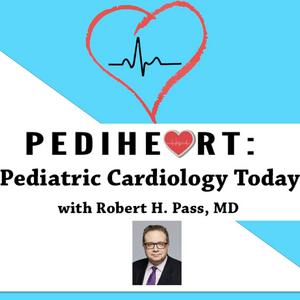No advertising. More Prime.
No advertising. More Prime.
No advertising. More Prime.
No advertising. More Prime.
The podcast starts in
- 0 sec.
Pediheart Podcast Replay #309: A Conversation With Surgical Living Legend, Dr. John Brown
Pediheart Podcast #372: 30+ Year Follow-Up After The Arterial Switch Operation - The Melbourne Experience
Pediheart Podcast #371: The Role Of Kindness, Compassion And Humility In Pediatric Cardiac Care
Pediheart Podcast #299 Replay: Public Reporting In Congenital Heart Surgery - The Good, The Bad And The Opportunities
Pediheart Podcast #370: Fetal Intervention For Restrictive Or Intact Atrial Septum In HLHS



Pediheart: Pediatric Cardiology Today